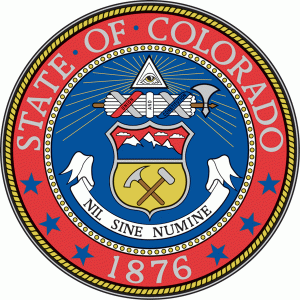 This post was co-authored by EDF legal fellow Laura Shields.
This post was co-authored by EDF legal fellow Laura Shields.
Colorado will decide this week whether to join 13 other states and implement protective state clean car standards.
The Colorado Air Quality Control Commission will hold public meetings tomorrow and Friday – and then they’ll vote on whether the Centennial State will adopt standards to protect people from climate pollution and other dangerous pollution from cars.
The proposed standards follow current Governor John Hickenlooper’s executive order directing the state Air Pollution Control Division to establish a clean car program. Newly elected Governor Jared Polis has also expressed his strong support for the state clean car standards.
Here are a few more things you should know before this week’s vote:
Colorado can drive health, environmental and economic protections forward – while the Trump administration takes the nation in reverse
State leadership on climate security and public health initiatives has never been more important.
The Trump administration has proposed to roll back our national Clean Car Standards, but Colorado’s adoption of state clean car standards will protect important environmental and economic benefits in the state.
In joining the coalition of states that have adopted more protective programs, Colorado can also help other states take up state clean car standards, thus catalyzing the important leadership of states all across the country who are protecting climate and clean air safeguards in the wake of damaging Trump administration rollbacks.
The coalition of states implementing state clean car standards currently covers more than a third of the new car market. As this coalition grows, states can ensure the health, environmental, and economic benefits of cleaner cars for their residents even in the absence of a protective national program.
State clean car standards will secure significant air pollution reductions in Colorado
EDF analysis indicates that Colorado’s adoption of the state clean car standards will bring significant climate and health benefits to the state, securing statewide climate pollution reductions of more two million metric tons annually in 2030, and more than four million metric tons annually in 2040.
The standards will also secure important reductions in smog-forming volatile organic compounds and nitrogen oxides. Smog causes serious health problems, including asthma attacks, long-term lung damage, and premature death.
The Regional Air Quality Council, which is responsible for air quality planning in the Denver Metro–North Front Range region, voiced strong support for Colorado’s adoption of clean car standards to guard against impacts of the Trump administration’s proposed national Clean Cars rollback, saying:
“Any increase in future automobile emissions that impact local air quality and/or our climate is unacceptable.”
Colorado’s adoption of state clean car standards will also move the state closer to achieving its climate pollution reduction goals, which is now more important than ever.
State clean car standards will bring massive cost savings to all Coloradans
Colorado’s adoption of the state clean car standards will protect the fuel cost savings Coloradans would realize under the national Clean Car Standards.
An analysis by MJ Bradley & Associates shows that the average Colorado family could save more than $2,300 in net cost savings over the first six years of car ownership – or almost $400 each year – at the gas pump. The extensive fuel cost savings far offset increased technology costs.
Colorado’s lower-income families stand to gain even more from the state’s adoption of a state clean car program. Additional analysis shows that under the current national standards lower-income households save a higher percentage of their annual income compared to higher-income households. Adoption of the state clean car standards will protect these cost savings and ensure that Colorado’s lower-income families are not disproportionately impacted by the Trump administration’s damaging rollback.
Colorado clean car standards have broad support
Colorado’s proposed adoption of a state clean car program has received broad support from a diverse set of stakeholders.
A local government coalition of ten cities and counties – including the City and County of Denver, Jefferson County Public Health, the City of Fort Collins, and the County of Pueblo – has urged adoption of the standards:
“Many Colorado communities are already experiencing the impacts of a warming climate in the form of reduced snowpack, earlier snowmelt, increased risk of high-intensity wildfires and their associated air pollution, extreme weather events, and an increased number of ‘high heat’ days. Far from being a problem of the future, climate change is impacting Coloradans now in a number of ways … Continuing a clean car program that includes the most stringent reductions possible is critical to achieving Colorado’s climate commitments.”
The American Lung Association expressed strong support for Colorado’s adoption of state clean car standards in the face of the Trump administration’s proposed rollback:
“As the federal government takes steps to weaken our national vehicle emissions programs, adopting stronger vehicle standards provides assurances that our residents will be protected to the greatest extent possible under the Clean Air Act – even if the federal standards move backwards.”
A coalition of Colorado businesses commented in support of Colorado’s adoption of low-emission vehicle and zero-emission vehicle standards, noting the positive impact a state clean car program will have on the Colorado’s business community:
“[Electric vehicles] have lower maintenance costs and both [zero-emission vehicles] and [low-emissions vehicles] have lower fuel costs, reducing the risks associated with fuel cost and supply volatility. These savings benefit not just our bottom line, but also our commuting employees and customers.”
The Manufacturers of Emission Controls Association (MECA) applauded Colorado’s commitment to state clean car standards:
“MECA commends the Colorado [Air Quality Control Commission] for taking important steps through this proposed rulemaking to reduce criteria pollutant and greenhouse gas emissions from light-duty vehicles in the state.”
Colorado’s adoption of state clean car standards will bring immense benefits to residents of the state, and will position Colorado as a leader in implementing policies that improve climate security, protect human health, and save our families hard-earned money.













 This post was co-authored by EDF legal fellow Laura Shields.
This post was co-authored by EDF legal fellow Laura Shields.